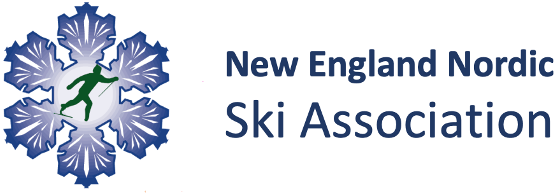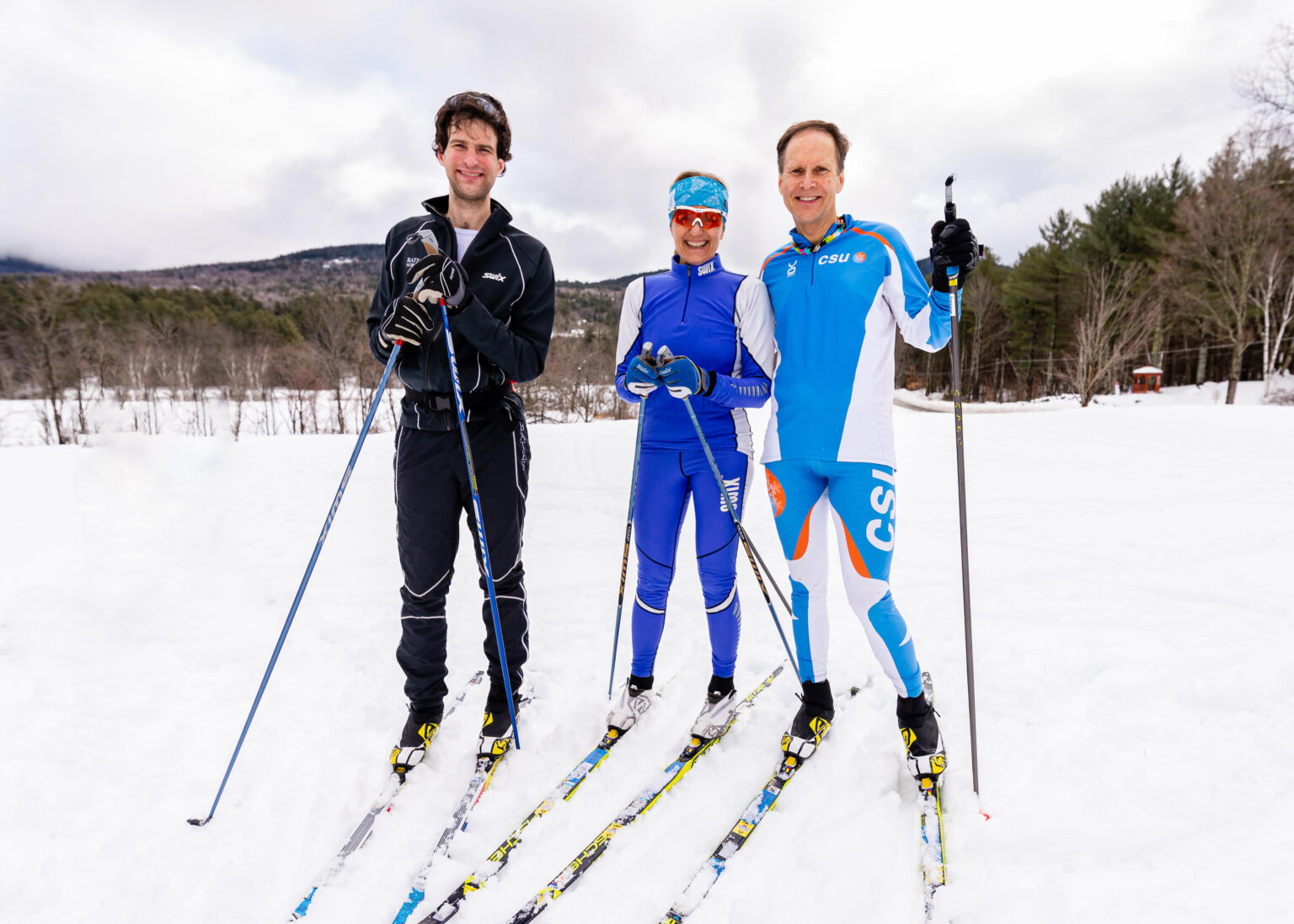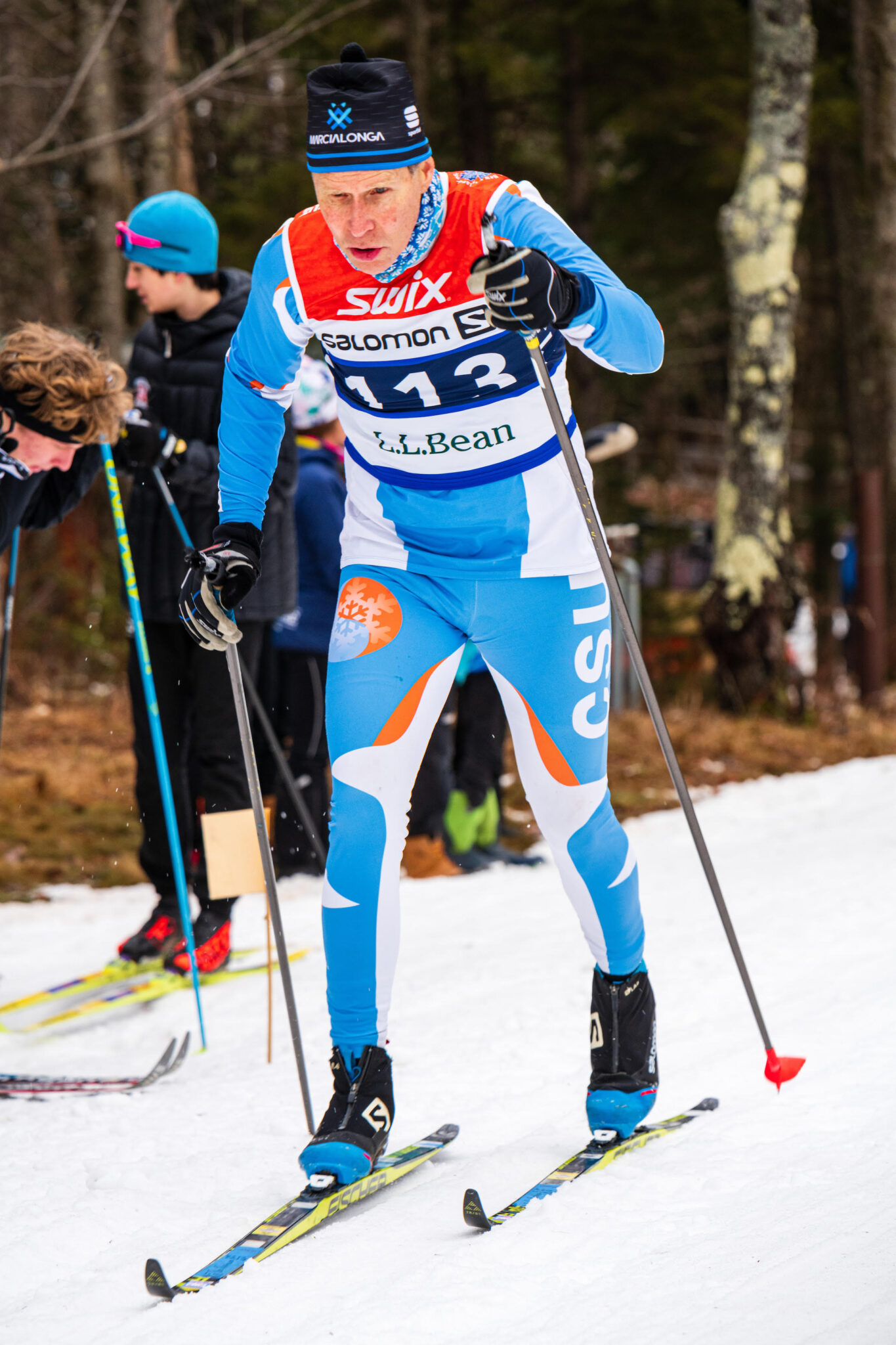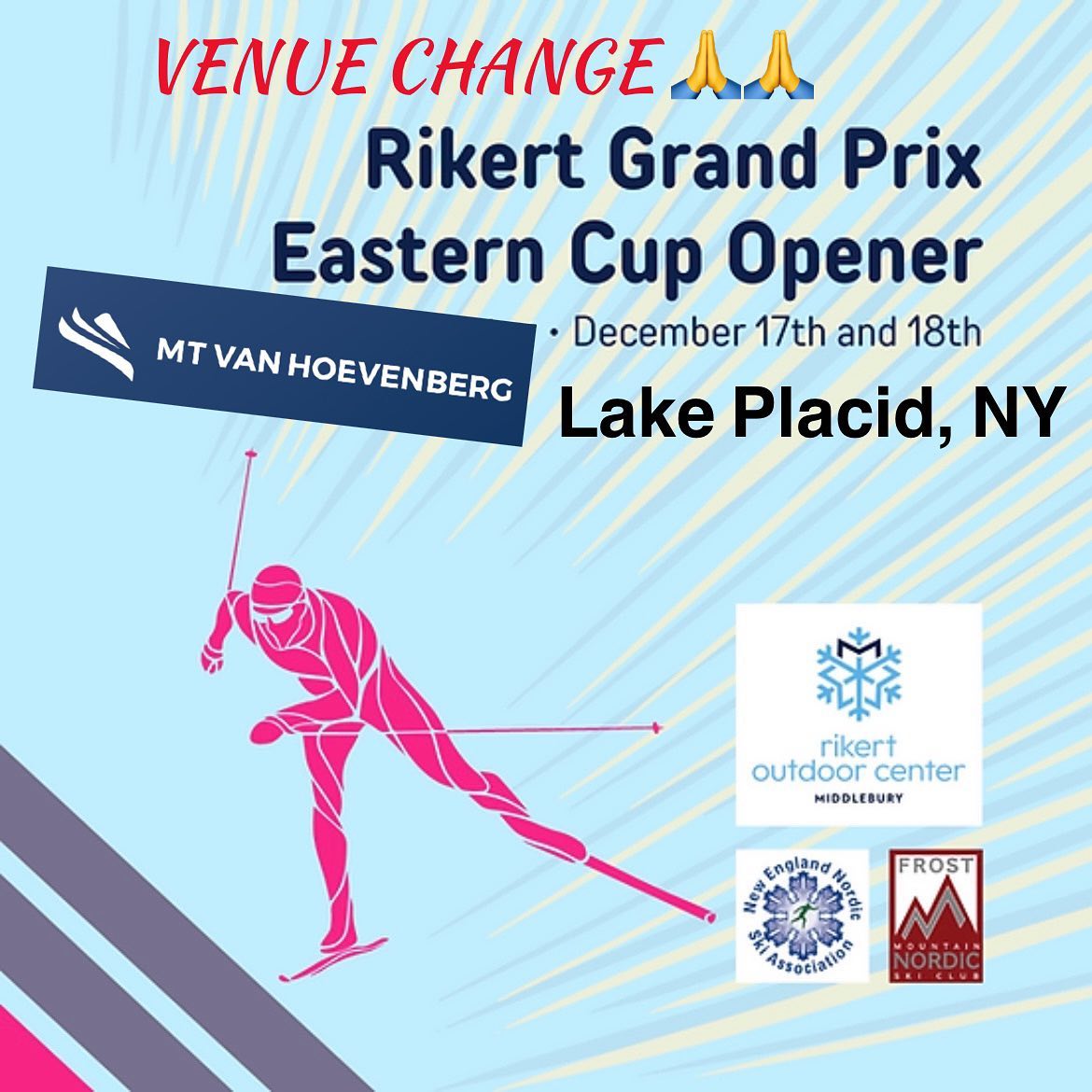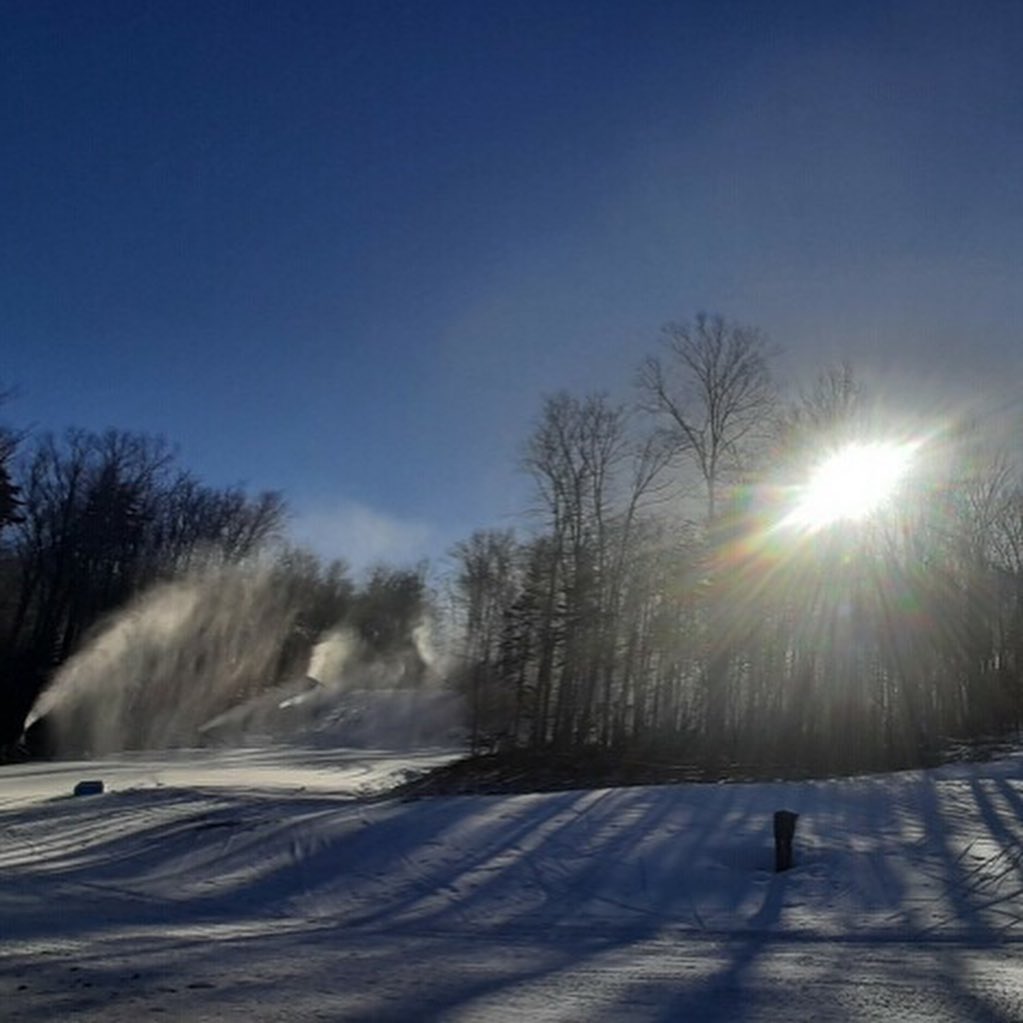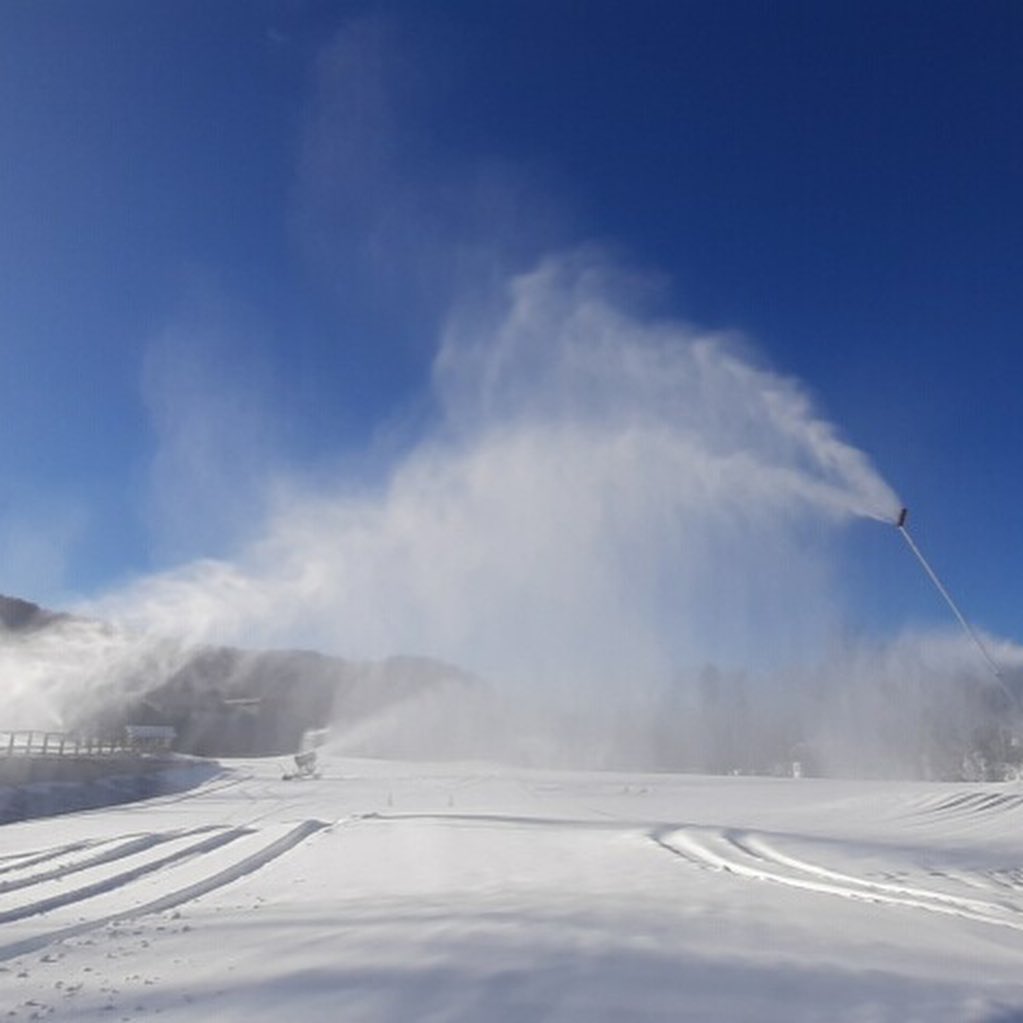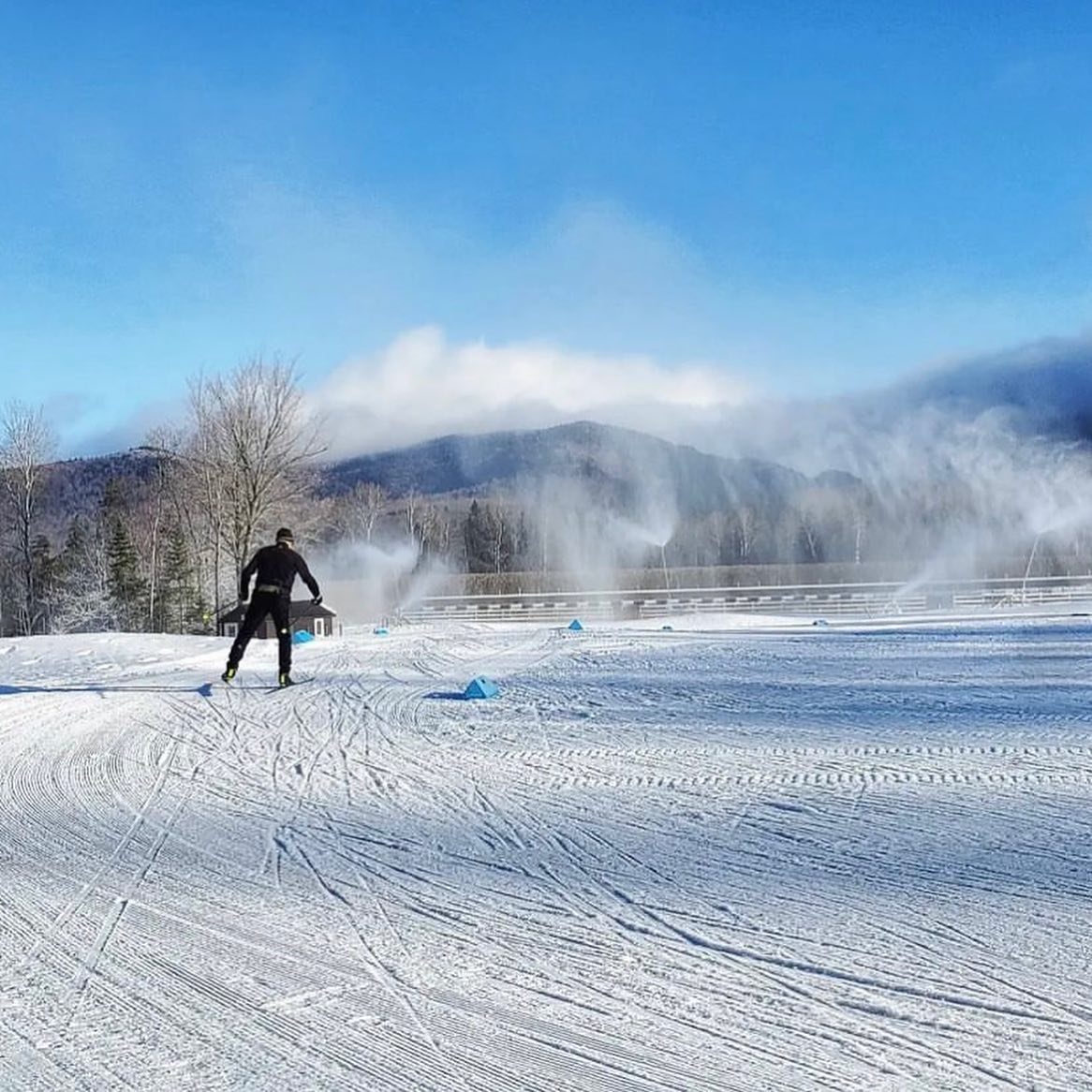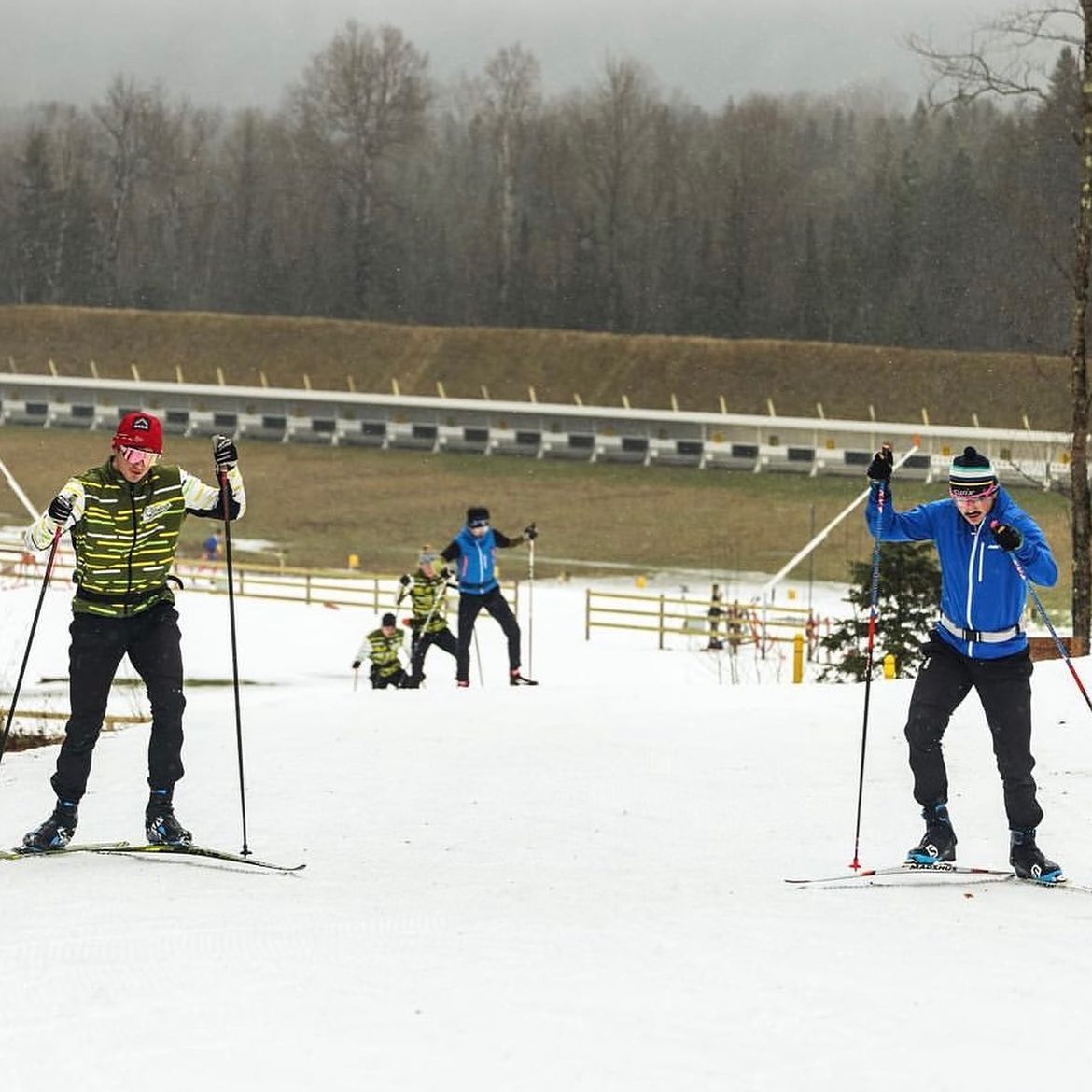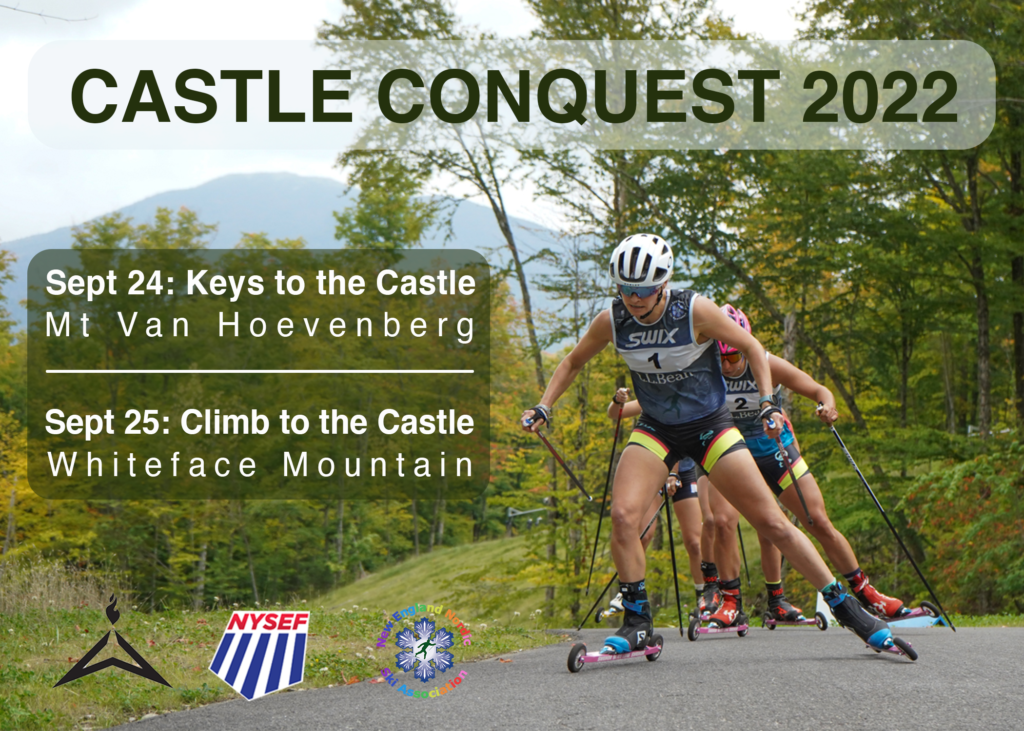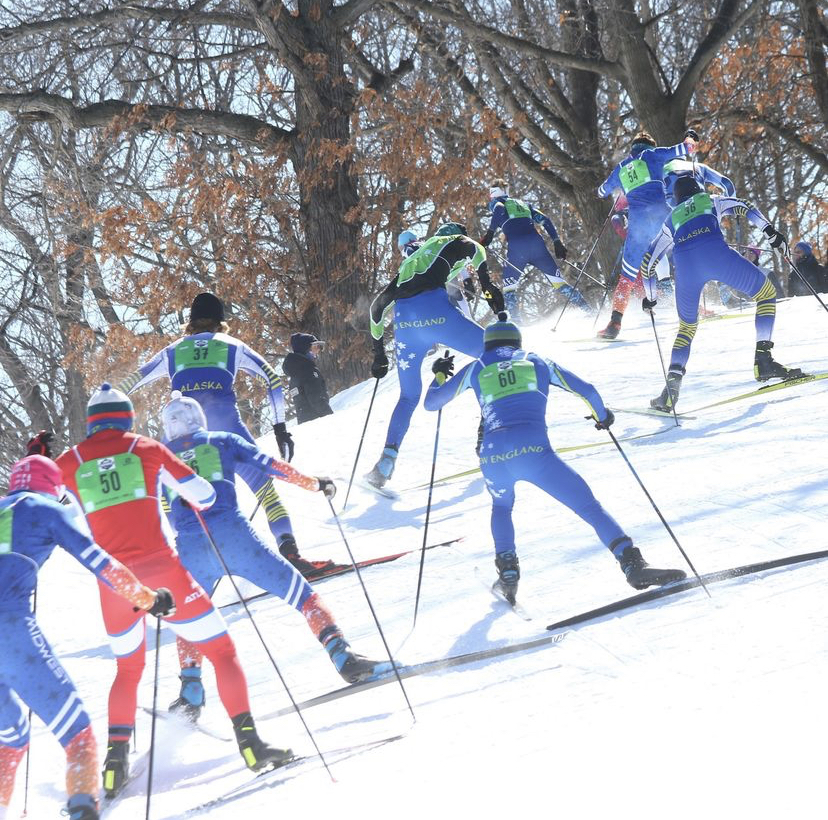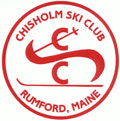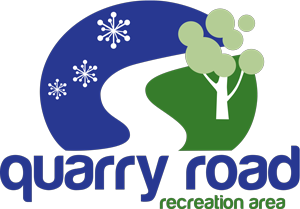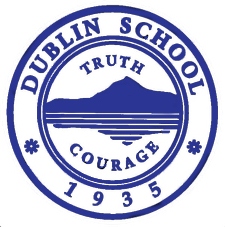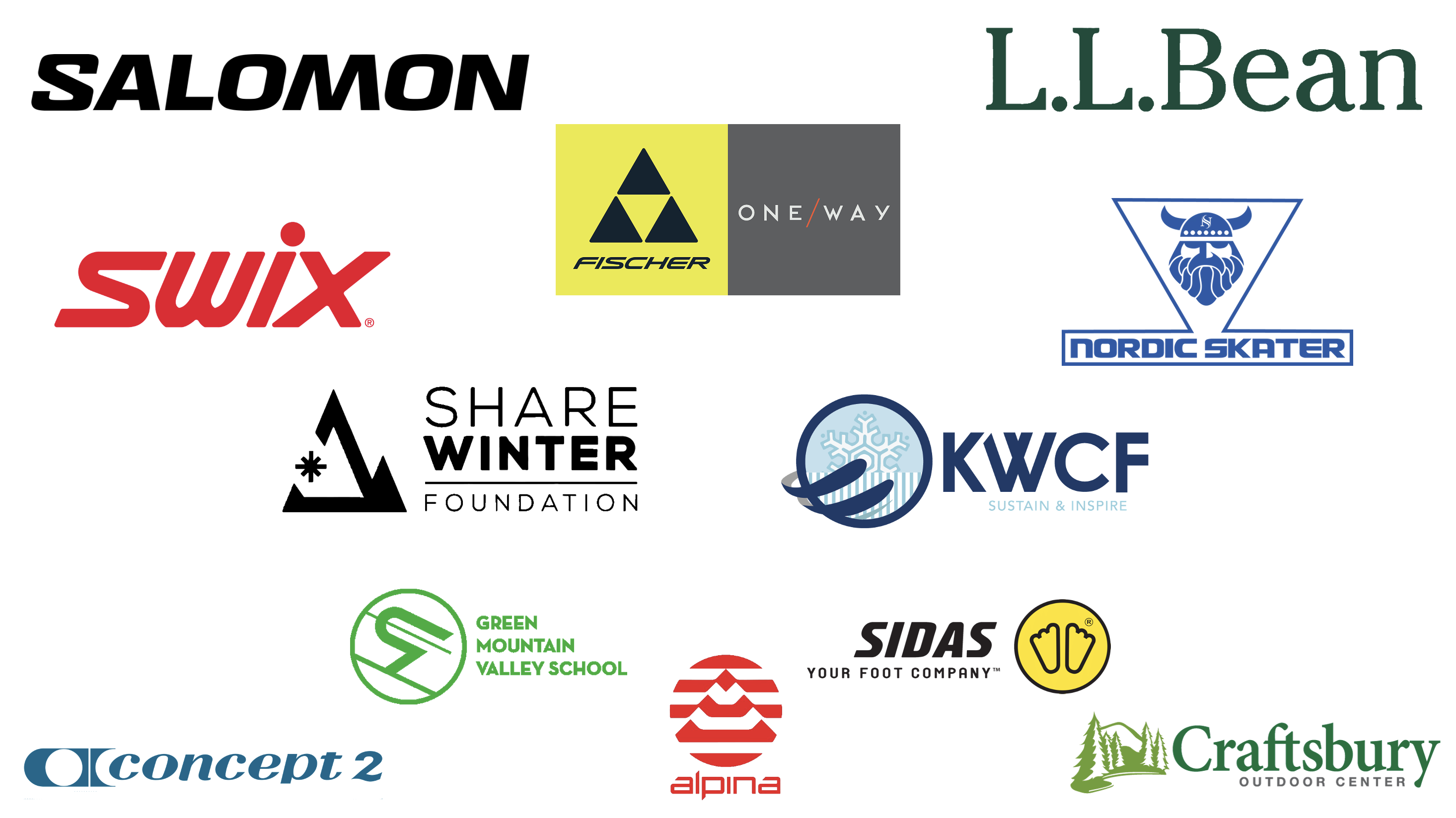Bob Burnham could not be a more fitting recipient of the 2023 Chummy Broomhall Award, as a dedicated volunteer of the CSU and EMXC program for over two decades. The award is named after Chummy, who was the Chisholm Ski Club leader for 70 plus years, a two time Olympian, and builder of the Olympic race courses for Palisades Tahoe and Lake Placid. He embodied the spirit of being a volunteer as he was a man who gave his time to generations. It is in this spirit that this award be in his honor for the unsung heroes of ski racing.
Bob with Ann and Jim Burnham at Jackson, 2020. Doucett photo.
Bob Burnham was nominated by Sarah Kirincich, a current EMXC skier, “ because he’s well known on EMXC for being the coach that also coached all of our coaches who were formerly on the team. He was one of my first teachers on EMXC and when I first joined the club in 2020, he brought me up to speed so I could ski with the group that season. Before he retired, he was one of the most dedicated people on the team.”
Burnham was a three event skier at Phillips Academy, competing in alpine, cross country and ski jumping – he then went on to ski Nordic Combined at Dartmouth. During these years he developed a love for skiing that would shape his life, and a mantra that, “any skiing is skiing.” After college Bob coached high school skiers at Missoula, Montana, Northfield-Mt. Hermon, and Phillips Academy. This diverse background turned into a love of sharing skiing as a lifetime sport – a passion he clearly passed on to his boys, Chris and Jimmy, as well as hundreds of skiers from the Boston area and beyond.
As his boys showed more interest in cross country skiing in high school, he started officially coaching for CSU in 2005, further developing his passion for getting kids into sports. This role lasted until this past season – well beyond when his children had graduated from the program. During this tenure he felt compelled to expose CSU skiers to the broader skiing community and the deep winter that could be found to the north including Mont-Sainte-Anne in Quebec. He originally learned about the area during the poor snow season of 1980, when he traveled there with the Dartmouth team in search of snow.
His son Chris explains, “He was so impressed with the skiing up there that he returned nearly every year since, later bringing this tradition to his family and to CSU itself. Early on, he realized that one of the biggest difficulties facing young skiers in eastern Massachusetts was the lack of consistent snow and difficult terrain to ski on. He worked with other CSU coaches to provide training camps during school vacation weeks in Quebec and New Hampshire. He has also led numerous smaller weekend camps in Jackson, NH and Stowe, VT.”
Jamie Doucett, another stalwart of CSU skiing, continues, “Bob has given freely of his time with the CSU/EMXC juniors for over two decades, roller skiing, running and skiing with the kids on training workouts around the Boston area, at ski camps at Mont-Sainte-Anne and manning a wax bench, skiing course warm ups, and cheering at most of the Eastern Cup races, U16 Championships and Eastern High School championships as well as countless other events. Bob got started with coaching juniors when his two boys, Jimmy and Chris, went into high school and joined the CSU Juniors. I think he was secretly relieved when his younger son Chris decided at last to abandon downhill skiing and go full-time into cross country skiing, as he would no longer have to do gate duty!”
“Bob spent so much time coaching, much of it in the background, because of his love of the sport and what it has and still gives to him and the enjoyment of sharing that with younger skiers. While skiing has always been a family thing with both his boys and his wife actively skiing, he has carried on coaching long past the time his boys were juniors, giving selflessly of his time and knowledge of the sport. The reward for Bob is to be out there skiing with young skiers and having the opportunity to pass along his joy of the sport, his experience, and knowledge to the next generation of skiers. And maybe tell a few stories along the way….”
Cate Brams, the EMXC Head Coach and Program Director, introduces another success story – that of Elizabeth Graziani, who, “entered her senior year of high school with one year of skiing experience. Thanks to Bob’s coaching, Elizabeth began her journey to be one of the strongest skiers on our team – three seasons later, she has just finished a PG year with GMVS where she placed in the top-15 at JNs, and she’ll be heading to Middlebury to ski in the fall. Just the most recent example of Bob’s impact!”
Elizabeth was inspired by Burnham, “Bob was my first coach on EMXC. Though I found Nordic late in high school, I quickly became passionate about skiing and knew I wanted to race in college. I talked to Bob about my goals and he spent countless practices helping me work on my technique. From my early EMXC days in “Red Pod” to running into him at races now, he’s always been extremely generous with his time, never without helpful advice or tips about the course. Bob is an amazing coach and it would be hard to overstate how grateful I am that he believed in me.”
Bob at the 2023 Bogburn. Doucett photo.
Skiing truly is a family affair for the Burnham’s – at this seasons Zak Cup awards the entire family found themselves in the top three of their age group. Chris, the eldest son, is known to log over 200 days of skiing a year – in Vermont – which is truly a feat! The author remembers a not so random connection to the Burnham family on the slopes of Snowbird in the late 2000’s – on a wonderful Utah powder day. Some 2300 miles from Boston, the whole family who I thought were cross country focused were shooting across the famous Cirque with alacrity! The smiles and recognition of other Nordic skiers so far from Eastern trails was enthusing to all.
Bob and his wife, Ann, enjoy traveling the globe, participating in World Loppets as well as regional races across New England. “Bob’s coaching has always been an integral, year round part of our lives. He’s always been very committed to his teams and loves seeing his kids progress. He brings a lifetime of ski experience to his coaching – alpine racing for Cannon, downhill training camps in Italy and Chile, JO’s in Nordic Combined, jumping and cross country for Dartmouth, as well as endless ski adventures with family and friends.”
Meg Yoder, a former CSU skier and current EMXC coach reflects on being coached by and coaching with Burnham, “Bob’s impact on the athletes he has coached cannot be understated. His ability to teach novice skiers to ski well is unmatched; he has never chosen to prioritize those who have a natural aptitude but instead sees the potential in all athletes. Bob taught me to ski, and while I trailed behind my peers he also gave me institutional knowledge that many in the ski community may take for granted, from its broad history right down to what kick wax was used at any given race in the past 60 years. Coaching alongside Bob, I came to more thoroughly appreciate his skill and dedication and to rely on him to crack the code when I couldn’t work out an athlete’s technique issue. His impact on our ski community cannot be overstated and I can think of no one more worthy of this recognition. Congrats Bob!”
We are fortunate to have people like Bob Burnham in our skiing community – his deep love of all modes of skiing and sharing the joy of sliding on snow has created a legacy that will live on for generations to come.
